Joint Australian of the Year Richard Scolyer: The phenomenal power of science … and hope
While most people diagnosed with a glioblastoma die within two years, joint Australian of the Year Richard Scolyer is training for an aquathlon and a duathlon, with no sign that his cancer has recurred.
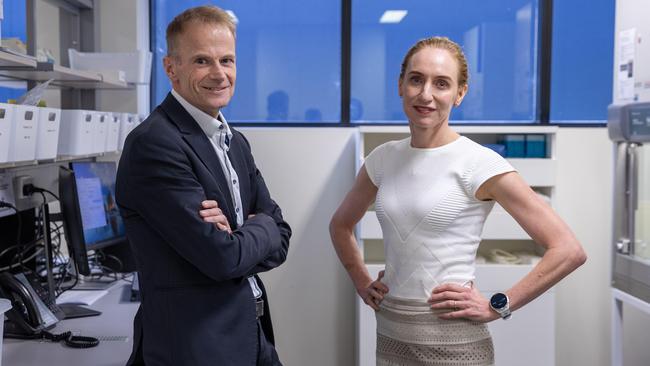
When Richard Scolyer was diagnosed with a rare and terminal brain cancer in May last year, he did not imagine that the following winter he would be clocking 15km runs and taking regular morning swims.
While most people diagnosed with a glioblastoma die within two years, Professor Scolyer was found to have a subtype with the worst outcome and an expected median survival of just 14 months.
And now here he is, almost 14 months to the day later, training for an aquathlon and a duathlon, and, as of his most recent test last Friday, with no sign that his cancer has recurred.
“I feel very fortunate that I have been able to enjoy my life, participate in a lot of activities,” he says as he prepares to compete at next month’s World Triathlon Multisport World Championships in Townsville.
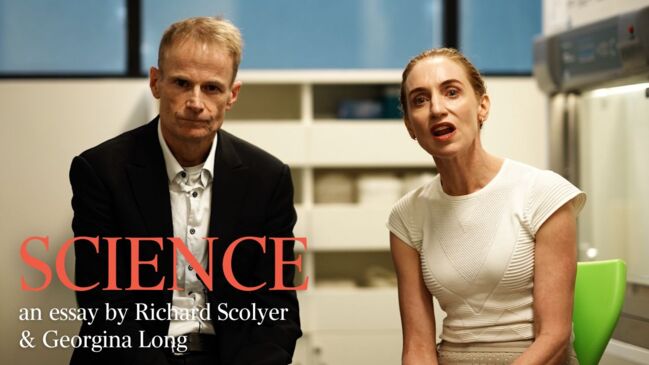
It’s been an extraordinary year for the world’s most published melanoma pathologist and co-medical director of Melanoma Institute Australia. After the shock of his diagnosis, Professor Scolyer agreed to undergo experimental therapy for brain cancer, and in January he was named co-Australian of the Year.
But it’s his medical progress that has been the most heartfelt standout. Rather than the traditional cocktail of chemotherapy and radiotherapy for similar brain cancers – a mix that in clinical trials extended survival by months – he was given a combination of immunotherapy drugs. They had been very effective for melanoma patients, and to a lesser degree for some other cancers, but not for his subtype of glioblastoma.
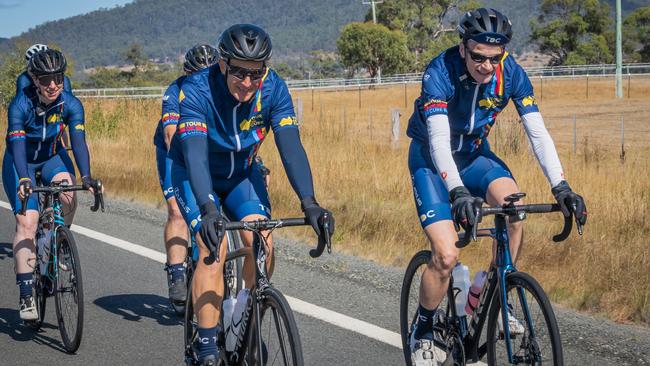
In a revolutionary process devised by his colleague Georgina Long, Professor Scolyer received the specialised immunotherapy before surgery. All these months later, no scan has shown a recurrence of his cancer – although no one can yet be sure to what extent his treatment is responsible, and for how long it might work.
“Some people say ‘it’s because you’re fit and healthy’, but I don’t think there’s any real evidence to say that. I think it’s more likely the genetic makeup I inherited,” says Professor Scolyer, 57, who with Professor Long, his co-Australian of the Year, has penned an essay on the value of science for The Australian’s 60th Anniversary Collector’s Edition magazine, published on Saturday.
That he is able to run and swim competitively so long after his diagnosis is one of the continuing marvels of Professor Scolyer’s new world. But ask him about his work life balance and he becomes emotional.
“It’s way different now. If I am perfectly honest I wish I had my old life back. You can hear that I am welling up in tears thinking about it,” he says.
“I miss my normal life.”
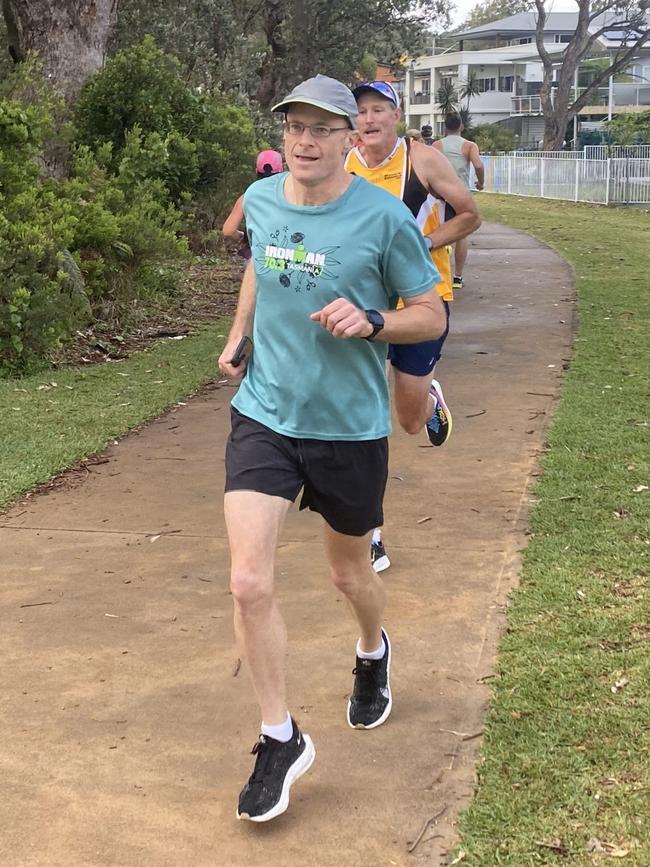
He is no longer responsible for reviewing cancer cases, a detailed undertaking that used to be a significant part of his work life. The countless treatments and tests he undertakes, and the plethora of side effects he has overcome, means that his time is ever more confined, and even after months of positive test results he worries about the impact of his health on his family.
“No one knows the future but obviously everyone is scared for what’s going to happen,” he says.
“The odds of me being cured are very, very small. I think it’s likely that I am going to survive the best averages.”
Fourteen months on, he says: “I’ve got hope that I am going to be going much longer than that.”
Hope is a recurring theme in Professor Scolyer’s new life.
“Hope is actually number one. It’s not just wishing for the best. Hope is a real thing that keeps you going,” says Professor Long, who is also one of his treating oncologists.
Having watched her grief-stricken lab colleagues respond to the devastation of last year’s diagnosis, she has seen their spirits lift as their lab co-leader’s health improved with the treatment they had worked on. “Their work was in Richard living,” she says.
As a friend and colleague, Professor Long, too, is exhaling just a little more these days.
“Hope is growing. In the beginning it was only a seedling of hope; we’ve got nothing to lose. Now that hope is a much bigger entity, because now, every month, I think of what if this is a desirable control,” she says, deliberately avoiding the use of the word cure. “We had better start working for him being here for another five years.”



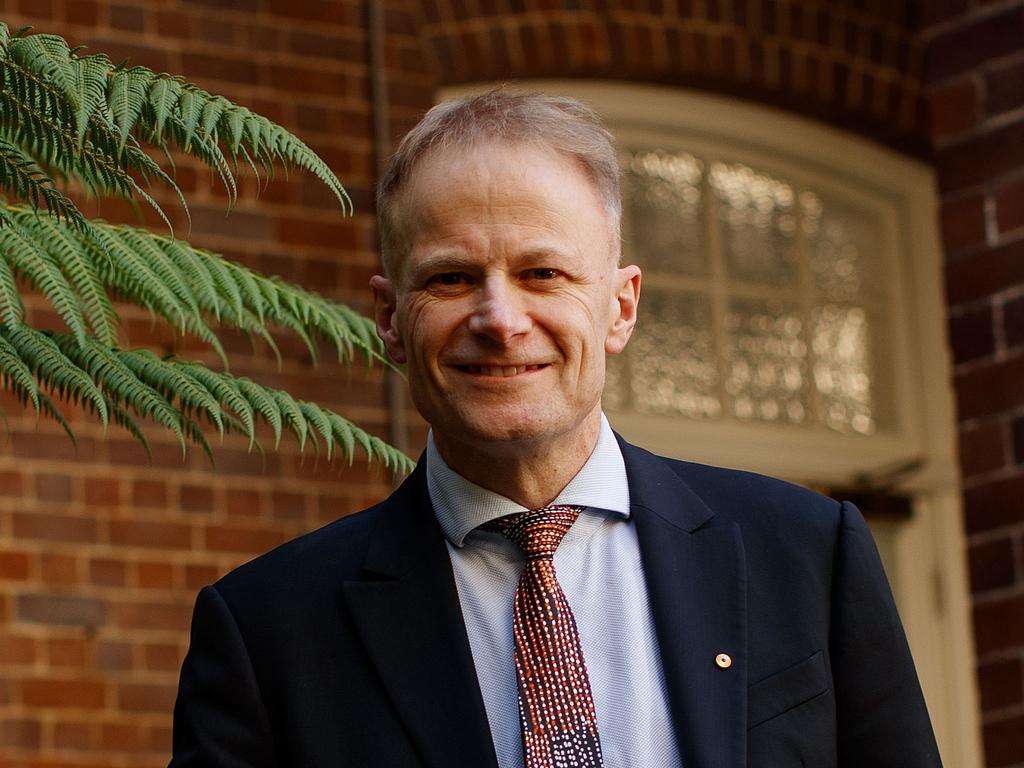



To join the conversation, please log in. Don't have an account? Register
Join the conversation, you are commenting as Logout